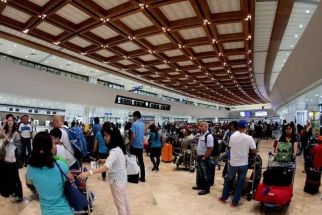China opens door to restore normal relations

While President Aquino III was fueling the South China Sea dispute in a visit to the US, a group of Filipino journalists were at the National Institute of South China Sea Studies listening to Professor Wu Sichun in Hainan. Sichun is the author of the book “Solving Disputes for Regional Cooperation and Development in the South China Sea.”
He had made the study of the conflict a lifetime endeavor and is in touch with academics and NGOs from different countries to explain the China perspective of the problem. He does not see the conflict as unsolvable. On the contrary, with the right perspective and dedication, like many others who desire peace and stability in the region, a way can be found to find an acceptable compromise. But he is adamant that Filipinos and Chinese refrain from actions that will hurt a friendship of more than a thousand years.
Recently he was in Manila, meeting with his Filipino counterparts at the university of the Philippines to continue the conversation despite acrimony brought about by Aquino. A Filipino is among the scholars of the South China Sea studies around the world, but he is not consulted by the Department of Foreign Affairs.
Too little has been written about the harm that the present Aquino administration did by calling on the UNCLOS to arbitrate on the conflict. I suspect that the move has only aggravated the problem making any solution difficult.
In my opinion, two points were brought out in the briefing of Shichun with the Filipino journalists – one, that the suit brought by the Philippines against China to the UNCLOS was unfortunate and ill-advised and did more bad than good to the friendship between the two countries. The second was a perceptible hint that despite what the Chinese consider to be an unfriendly act by the Philippines when it brought the case before the UN body, they did not entirely close the door to a possible solution.
* * *
The conversation between the academics at the NISCSS led by Professor Shichun and the Filipino journalists on the whole was frank and open leading one to believe that that sometime in the future, (perhaps after the elections of 2016) friendly relations would be normalized.
This attitude was in contrast to the behavior of President Aquino who criticized China in an interview while on a visit to the US last August 17, after it was reported that there were 2 Chinese hydrographic ships spotted in the disputed West Philippine Sea (South China Sea).
“Anong ginagawa nila diyan? Anong studies nila? Sana hindi nagbabadya ‘to ng mas malaki, may dagdag na naman, o panibagong tensyon sa ating dalawa,” Aquino said(What are they doing there? What are their studies? I hope this doesn’t lead to worsened or additional tension between the two of us).
The sighting of the 2 Chinese vessels came after the Philippines extended a British company’s permit in July to conduct oil drilling activities in Recto Bank.
But China rejected the accusations as “illegal and invalid.” The permit allowed Forum Energy, a British firm led by Filipino businessman Manuel Pangilinan, to conduct its oil drilling in Recto Bank until August 15, 2016.
When asked what he thought of Forum Energy’s exploration activities, Shichun said it should not come in the way of cooperation if that was what was desired. Cooperation between the two countries whether it was for oil exploration or the management of the sea and its fishing resources. These were also the aims of China.
But somewhere along the way it became an issue used by the present Aquino administration for politicking as he did while he was visiting the United States. Shichun said this was unfortunate and quite unlike the behavior of other claimants who have maintained good relations despite the contested sovereignty issue. He cited Malaysia (one of the claimants) who has increased its trade and cooperation with China despite the dispute.
The dispute between the Philippines and China unfortunately has been conducted through hostile acts that prevent cooperation like the filing of the suit. It was damaging and yet it would not bring a resolution anyway whatever the judgment of the court would be because China is not taking part in the arbitration. Arbitration through UNCLOS can only be possible if both contending parties agree to be arbitrated.
Happily, Manuel V. Pangilinan takes off from that position of bilateral cooperation. His firm, Forum Energy will continue to negotiate with the state-run China National Offshore Oil Corp. (CNOOC) for the joint exploration of Recto Bank.
With the Shichun statement made during the briefing that cooperation was possible, Pangilinan is on the right track.
* * *
The problem arises from the Aquino government’s use of the SCS issue as a tool in “domestic politics.”
“The current government of the Philippines is facing many domestic challenges such as economic depression, corruption and competition among different political forces.” Sichun writes in his book. “The SCS issue serves as a distraction to diffuse domestic tension. When the approval rating for President Aquino slipped from its peak immediately after the 2010 election, he tried to stir nationalist sentiments in a nationally televised address by saying we do not wish to increase tensions with anyone, but we must let the world know that we are ready to protect what is ours.”
He also referred to the EDCA as directed against China. “The strengthened military ties between the Philippines and the United States will stir up more bold incidents. The US rebalance strategy has turned Southeast Asia into a competition ground for major powers. The Philippine alliance with the United States will enable it to benefit from the increasing US presence in the area.
The SCS issue has evolved from a regional dispute to being an apple of discord that has attracted world attention. “
“The Philippines believes that internationalizing the dispute will work to its advantage. With the combination of US demand and Philippine expectations, it is perceived that Philippine policies in the SCS will become more active and it will take more assertive steps in the near future,” he concludes.
- Latest
- Trending




























